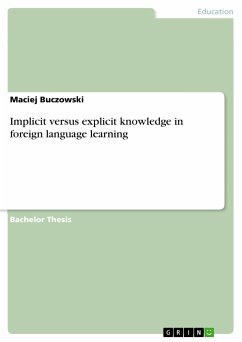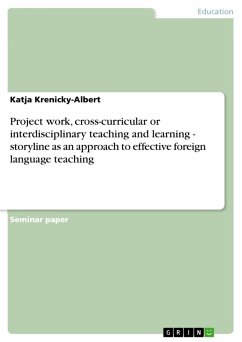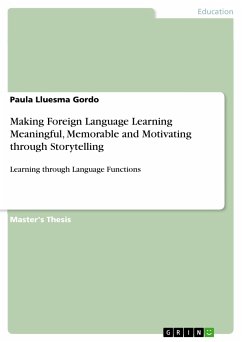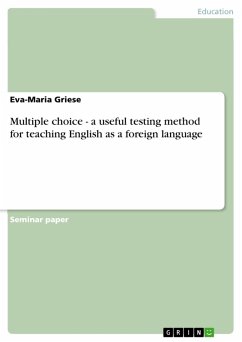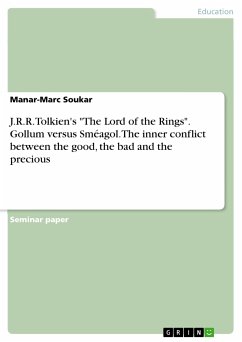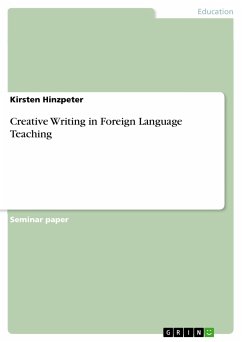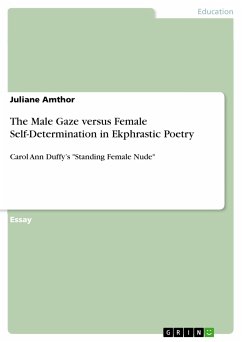Bachelor Thesis from the year 2009 in the subject Didactics for the subject English - Pedagogy, Literature Studies, grade: gut, University of Poznan (Institute of English), course: Teaching methods, language: English, abstract: The differentiation between explicit and implicit knowledge has been a key issue discussed by researchers involved in second language acquisition throughout the last several decades. Some follow the ideas of Stephen Krashen, the trail blazer of studies concerning implicit knowledge and focus on meaning. Other, believe that explicit knowledge is more important. The core of this BA thesis is an empirical study measuring implicit and explicit knowledge of a group secondary school students. The study is preceded by two chapters discussing relevant issues about implicit and explicit knowledge as well as various tests that measure the knowledge of a subject. The first chapter describes the similarities and differences between explicit and implicit knowledge. It provides general information that is developed later on, or that needs to be mentioned in order to supply sufficient details that form the background of the empirical research that is presented in the third chapter. The main aim of the first chapter is to present seven dimensions which help to distinguish implicit knowledge from explicit knowledge. This chapter also touches upon the issue of learning difficulty of certain grammatical features. The second chapter is a description of various criteria on the basis of which implicit and explicit knowledge is measured. What is more, there are different tests that measure implicit and explicit knowledge included in this section, together with the ways in which they are formed, and the importance they have in measuring a given type of knowledge. The aforementioned tests encompass the imitation test, timed as well as the untimed version of the grammar judgement test (GJT), oral narrative test, and finally the metalinguistic knowledge test. The third chapter is an empirical study prepared by the author. It is divided into two parts, and measures both implicit and explicit knowledge of the participants. The study itself was inspired by three other experiments, but it also possesses its original and unique ideas. Apart from measuring implicit and explicit knowledge, it also explores metalinguistic knowledge and the issue of systematicity. The research analyses several key questions, the most important concerning which type of knowledge learners from a typical secondary school in Poland make use of more efficiently.
Dieser Download kann aus rechtlichen Gründen nur mit Rechnungsadresse in A, B, BG, CY, CZ, D, DK, EW, E, FIN, F, GR, HR, H, IRL, I, LT, L, LR, M, NL, PL, P, R, S, SLO, SK ausgeliefert werden.

